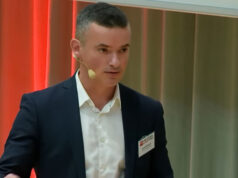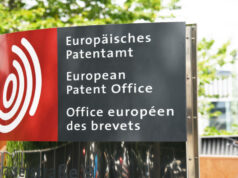
Advancements for Elicera in 2022 open for intensive clinical year
In 2022, Elicera Therapeutics – the only Swedish R&D company developing CAR T-cell therapies in Sweden – advanced on several fronts. The company received a total of more than SEK 30 million in grants which finance, among other things, its clinical activities. In addition to the company taking important steps in business development, new positive research results with the company’s oncolytic virus were also presented. Furthermore, Elicera recently applied to start the first clinical trial with the company’s CAR T treatment ELC-301. If approved, it would pave the way for an intensive clinical year in 2023.
The focus of the cell and gene therapy company Elicera Therapeutics is developing next-generation cell and gene therapies based on CAR T-cells and oncolytic viruses. The company currently has four drug candidates in its pipeline – two in the area of CAR T-cells (ELC-301 and ELC-401) and two based on oncolytic viruses (ELC-201 and ELC-100).
A key asset for the company is its commercially available platform technology, iTANK (immunotherapies Activated with NAP for efficient Killing), which arms CAR T-cells and activates a (to the CAR T-cell therapy) parallel immune response against cancer. iTANK arms the company’s two CAR T-cell-based candidates as well as ELC-201.
Business development accelerating
In the year-end report for 2022, with a specific focus on Q4, CEO Jamal El-Mosleh emphasises that the year offered several successes for Elicera. The fourth quarter was no exception. The first milestone during the quarter was the Material Transfer Agreement (MTA) signed with the Spanish Josep Carreras Leukemia Research Institute (JCLRI) in October. This enables JCLRI to use iTANK with the aim of arming CAR T-cells intended for the treatment of the difficult-to-treat cancer disease Ewing’s sarcoma.
Elicera’s business strategy is based on entering into several collaboration and license agreements for the iTANK platform. This collaboration could constitute the first of several potential collaborations that the company is working to establish in the future. The platform has proven to apply to all types of CAR T-cells, regardless of the target of the CAR T-cells, or the type of cancer intended to be treated. This enables many potential licensees. Read more about this here.
El-Mosleh underlines that in the fourth quarter, Elicera saw continued great interest from both existing dialogues about potential partnerships and new stakeholders who could possibly use the iTANK platform. In order to further accelerate business development, Elicera engaged the strategy and transaction advisor LifeSci Consulting in January 2023. The company hopes this will strengthen discussions with potential partners.
Grants finance the clinical programme
Something that greatly benefited Elicera’s operations is the funding received in 2022. In January, the company was awarded SEK 5 million by Vinnova to develop an automated manufacturing process for CAR T-cells. Then, in May, Elicera received 2.5 MEur from the European Innovation Council’s (EIC) accelerator programme.
The funding from EIC means that a planned phase I/II study with the company’s most advanced candidate, ELC-301, is fully funded. Read more here. In addition to the capital injection, the grants signal that Elicera’s innovation is potentially ground-breaking.
During the fourth quarter, Elicera’s Co-founder Professor Magnus Essand and Associate Professor Di Yu were granted SEK 7.65 million by the Swedish Cancer Society in November. This makes for a valuable financial addition to their research into CAR T-cell treatment at Uppsala University. Although the grant is aimed at the Co-founders’ research at the academy, the research results could nevertheless contribute to the development of Elicera’s upcoming clinical CAR T programme regarding ELC-401.
Study application awaiting approval
The study activities conducted during the year resulted in the presentation of proof-of-concept data from the company’s preclinical activities with the oncolytic virus ELC-201 at the Oncolytic Virotherapy Summit in Boston in December. Elicera also presented new data from the ongoing phase I/IIa clinical trial evaluating ELC-100, an oncolytic virus for the treatment of neuroendocrine tumours. The data showed signs of clinical activity by decreasing the size of some metastases. In the study, three patients remain in the last cohort. Considering the safety committee’s recommendation to continue with the study as planned, the company has received the go-ahead to recruit these remaining patients.
Elicera may soon expand its clinical programme, pending approval of the clinical trial application for ELC-301 that was recently submitted to the Swedish Medicines Agency and the Swedish Ethical Review Authority. The study will evaluate the safety and efficacy of a dose of CD20-targeted CAR T-cells armed with immune-activating properties via the iTANK platform in patients with intractable and/or metastatic B-cell lymphoma.
In case of approval, Elicera intends to initiate this study immediately. The study would also be the first time that Elicera evaluates both a CAR T-cell therapy and the iTANK platform in the clinic. This would open up for a 2023 with several potential clinical milestones along the way.
The content of BioStock’s news and analyses is independent but the work of BioStock is to a certain degree financed by life science companies. The above article concerns a company from which BioStock has received financing.

